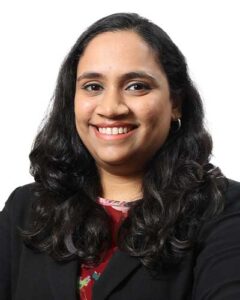Songs are made of multiple layers, from music composition, lyrics, and vocal performances to audio production, mixing, and mastering. While this seems simple, complications arise in determining the royalties owed to the contributors to each of these layers. The complications are increased because of the lack of legal clarity over the rights of owners, such as music labels and publishers, authors, composers, and singers to receive royalties.

Managing Partner
TMT Law Practice
Many will be familiar with the issue of royalties payable to the authors of lyrics and composers of music, but another debate surrounds singers receiving royalties from the use of their vocal performances. The first and basic question is what are the rights that singers and other performers have in their performances. This arises because a recorded or live performance is not a work enjoying copyright protection. Sections 2(q), 2(qq), and 2(z) of the Copyright Act, 1957 (act), as read with section 14 of the act are clear. A singer is entitled to performers’ rights and moral rights instead of copyright. Under sections 38, 38A and 38B of the act, performers’ rights mirror the protection afforded by copyright, but enjoy only weaker neighbouring rights of copyright.
By definition (under the act), performers’ rights apply only to live performances. Once the performance is incorporated into a sound recording or an audio-visual work, it is no longer a live performance. It is clear, therefore, that a performer is entitled to any fee agreed for their performance but not to royalties for the playing of any recording of that performance. However, in Neha Bhasin v Anand Raj Anand, the High Court of Delhi stated that “Every performance has to be live in the first instance whether it is before an audience or in a studio. If this performance is recorded and thereafter exploited without the permission of the performer then the performer’s right is infringed.” This opinion did not determine the outcome of the case, although singers are relying on it in cases currently before the Delhi High Court.

Senior Associate
TMT Law Practice
Even if performers are entitled to royalties, how they may receive such payments is also unclear. Section 38A of the act provides that once a performer has consented to incorporating their performance in a film, they cannot object to the use, by a producer, of their performer’s rights. This is consistent with the definition of a performance being limited to a live performance.
The proviso to section 38A of the act states that a performer shall be entitled to receive royalties where performances are made for commercial use. Commercial use is undefined. This gap is argued to be rectified through the Copyright Rules, 2013, despite rule-making power not extending to inserting interpretations into the act itself. Whether this proviso merely saves a commercial use of the live performance outside the film may perhaps only be determined by cases currently before the Delhi High Court.
Section 39A of the act extends certain provisions of the act that typically apply to copyright “with necessary adaptations”, to performers’ rights. These provisions include the right of the authors of literary and musical works to receive royalties under sections 18 and 19 of the act. It is not settled whether and to what extent necessary adaptation should be stretched to afford performers the same rights.
India is a signatory and has acceded to the Agreement on Trade-Related Aspects of Intellectual Property Rights as well as the WIPO (World Intellectual Property Organization) Performances and Phonograms Treaty (WPPT), neither of which requires the sharing of royalties between sound recording owners and performers. WPPT does provide that owners and performers have the right to a single equitable remuneration for the use of phonograms, as enacted by national legislation, but India has entered a reservation that it will not apply this provision.
This leaves many unanswered questions, including what are performances and are they limited to live performances? If yes, who is responsible to pay performers royalties for live performances in concerts? If not, are recorded studio performances excluded? Are there exceptions to the exercise of rights by performers? What channels will be required to pay performers royalties and who will be liable to pay?
These questions have been unanswered since at least the amendments in 2012. Only the future knows when the answers will finally arrive.
Abhishek Malhotra is the managing partner and Urjitah Srikanth is a senior associate at TMT Law Practice.
TMT Law Practice
C-2/39, Safdarjung
Development Area,
adjacent to Aurobindo Market
New Delhi-110 016, India
Contact details:
Tel: +91 (11) 26512813
+91 (11) 41682996
Email:























